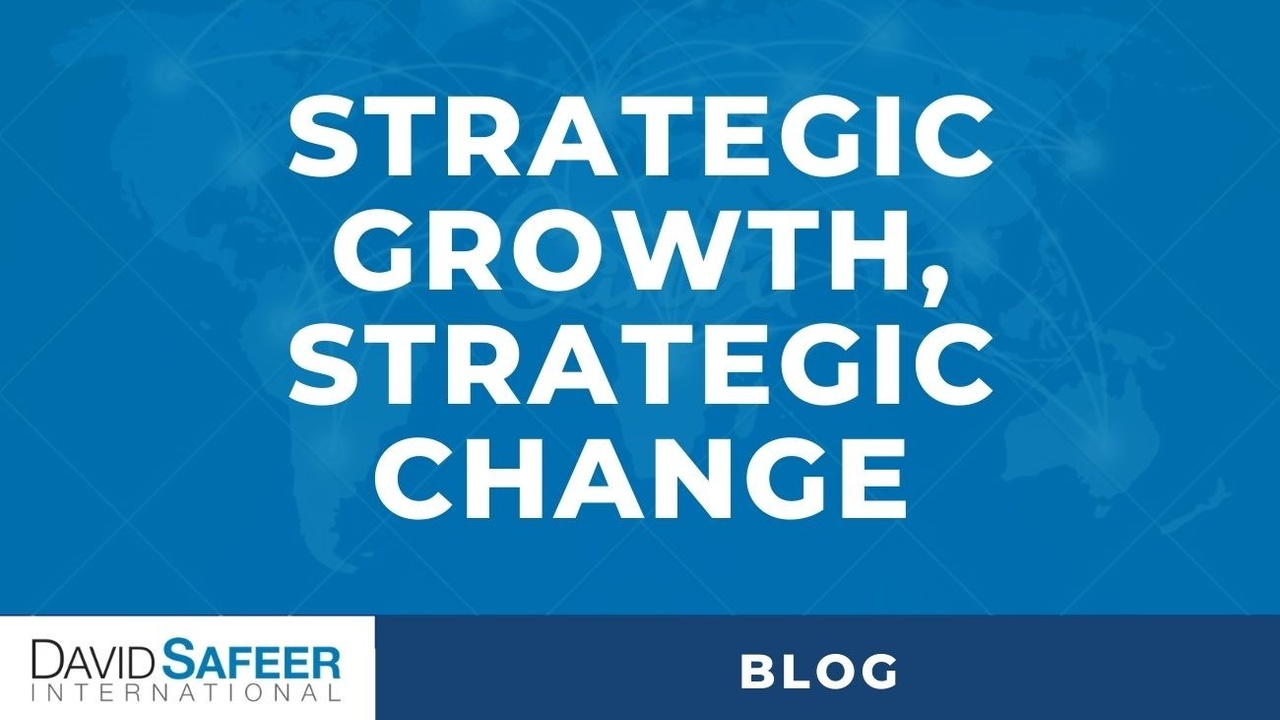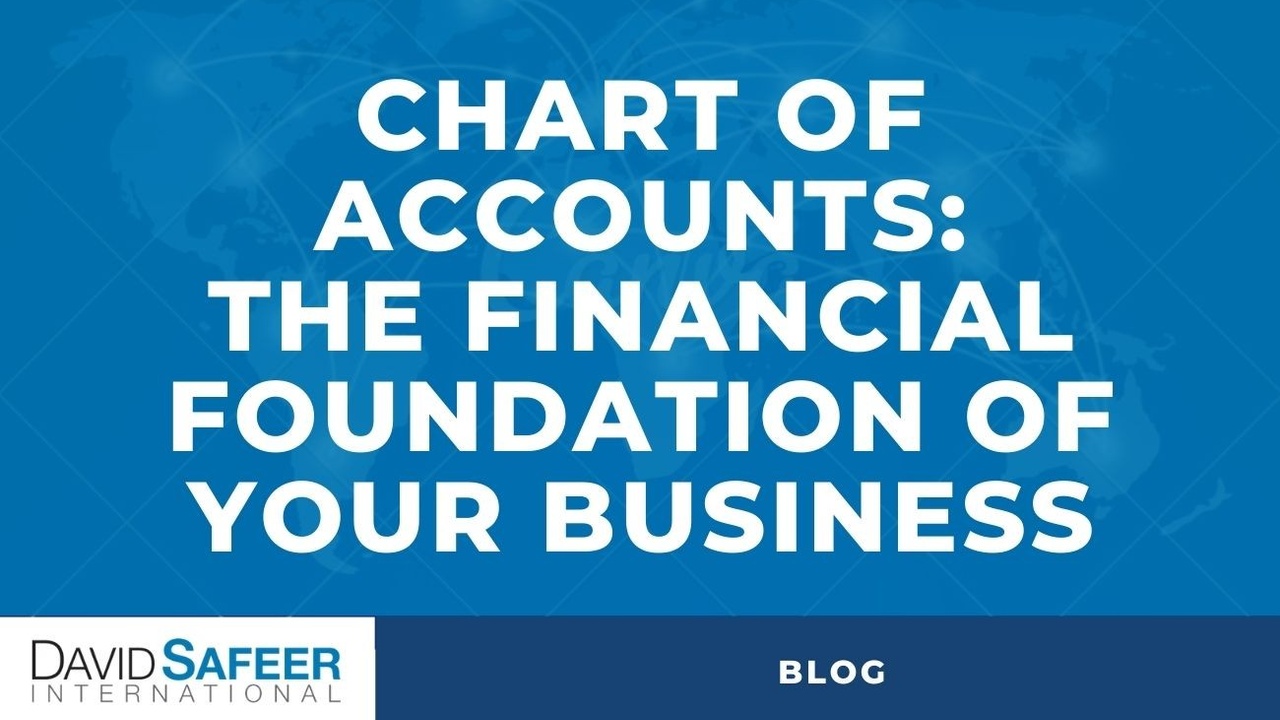Strategic Growth, Strategic Change

When was the last time you took a step back and asked yourself, “Is there a better way to really grow my practice?” "Is the path I'm on leading me in the direction I want to go long-term?"
There are dozens of “quick fix” tactics competing for your time and attention, but will any of them drive your practice to the next level? Will any of them provide the work/life satisfaction you're looking for? Probably not, and here’s why:
They don’t address the root cause of job dissatisfaction or anemic growth.
While you’re trying to figure out your best social media channel, how to get found on the Internet, or the best way to get a promotion, you should be looking at:
- Product or service changes to penetrate new markets and sell more to your current customers
- Strategic growth initiatives such as going up-market or down-market, geographic expansion
- Strategic demand-generation marketing initiatives such as public relations and branding - especially if expanding services
- Enhancing distribut ...
Who's on Your Team?

The quality of your team can have a HUGE impact on your cash flow. You are much better off paying ABOVE market wages and benefits to a smaller number of "A" and "B" players than trying to save some money hiring average people at lower wages.
Here are two examples:
- A manager at a bridal shop who ran all sales and marketing. She was not paid in line with the results, asked for more, was told "no", so she left. When the store owner realized how much work was being done, a sales manager and a marketing manager were hired. The sales manager wasn't up to the job and quit after a few months.
- We reorganized a division that was losing a LOT of money. We laid off 50% of the workforce that did not have the skills or attitude that was needed. We rehired back 25% of the headcount with people with the right skills. We needed to pay much more per person and saved very little on compensation. The smaller team produced much better results and we were profitable within 1 year.
People think that...
Fix Your Finances

The COVID-19 global pandemic is a wake-up call to ALL business owners to take responsibility for their company finances.
I posted that financial advisors are responsible for the companies they work with to have good financial plans, including a 13-week cash flow model. Now, I am putting the responsibility 100% onto business owners. There are no more excuses.
For too long business owners have said...
"It's not about the money, it's about the people."
"I do it for the love of my craft."
"Someone else can deal with the finances."
"I want to be my own boss, but so I decide that I only want basic bookkeeping."
Now a tiny virus has told you that you are wrong.
You are in business. Business is about the numbers.
Not only numbers, but if you don't have money, you can't...
...help people
...work your craft
...let someone else worry
...be your own boss
If you survive this downturn, fix your finances.
Start with a cash flow model that tells you how long you can survive. (Put "Cashflow" in the comments if you wa...
Profit with Sustainable Cash Flow

Profit does not mean that there is cash in the bank. A growing bank account does not mean that you are making a profit.
Surprised? You're not alone. Most schools, CPAs, news reports, etc. focus on a company’s earnings, profits, and sales. That’s because those same institutions are geared toward teaching, working for, and reporting for BIG big businesses and public companies.
But if you are a small business, your most important measurements for the next 3 months or so have to do with cash:
- How much cash is coming into or going out of the company?
- What is your cash balance projected to be?
- Do you have cash or credit reserves to get you through cash shortfalls?
So don’t be fooled by “the establishment” into thinking “profit, profit, profit.”
Think: “Profit with sustainable cash flow!”
Let me know if “profit without cash” is a new concept to you, or if it’s not, how you learned about the concept!
E-mail me your comments at david@davidsafeer.com
Don't Borrow Money, Just Don't Pay Your Bills

No money to pay your bills? Don't borrow money, just don't pay your bills.
You have to pay them at some point, but there are tactics to slow down money flowing out of your bank account.
But FIRST... here are some bills you need to pay on time:
Payroll.
Payroll.
Payroll.
Anything that puts you in breach of contract and puts your business, your home, or your health at risk.
Other than that, most bills can be postponed past the due date without dire consequences.
Look at bills that you owe large corporations, who are used to delays. Telephone, internet, utilities, insurance companies. You may be able to wait up to 60 days without consequences. Let them know when you'll be paying.
Suppliers: Make sure that you talk with them. Make payment arrangements. Don't surprise them. Make a partial payment. Many times your relationship is more important than delaying payment.
Mortgages and rent: Most have a no-penalty grace period. Use it when you need to.
Please, be careful with solo-entrepreneurs and small-bu...
Fortnight Cash Flow with David Safeer
On this episode of Fortnight Cash Flow, David talks with DryRun's Jeremy Burke discussing simple cash flow optimization techniques that you can implement in your own business.
Give Your Clients a Return on Their Investment

Are you a cost center or do you provide a documented return on investment (ROI) for your clients?
Most companies, non-profits, and government institutions view accounting, bookkeeping, tax preparation, and financial analysis as an expense that needs to be endured. Because of this, they often look for a low-cost provider that meets a minimum standard, like a certification.
Examples would be a QuickBooks Advisor, accounting degree, or CPA or Chartered Accountant.
There are literally millions that have certifications of each type.
What if you could show an ROI to clients?
Show them that for every dollar, pound, Euro, lira, or peso they spend they get to save or make 5x, 10x, 100x, or even 1,000x what they spent?
The best way to do that is through advisory services which help improve a company's financial performance.
If this interests you, book a call to explore this opportunity further. It could be a perfect fit for you and your practice.
The Quality of Your Team

The quality of your team can have a HUGE impact on your cash flow. You are much better off paying ABOVE market wages and benefits to a smaller number of "A" and "B" players than trying to save some money hiring average people at lower wages.
Here are two examples:
- A manager at a bridal shop who ran all sales and marketing. She was not paid in line with the results, asked for more, was told "no", so she left. When the store owner realized how much work was being done, a sales manager and a marketing manager were hired. The sales manager wasn't up to the job and quit after a few months.
- We reorganized a division that was losing a LOT of money. We laid off 50% of the workforce that did not have the skills or attitude that was needed. We rehired back 25% of the headcount with people with the right skills. We needed to pay much more per person, and saved very little on compensation. The smaller team produced much better results and we were profitable within 1 year.
People think that this is...
Chart of Accounts: The Financial Foundation of Your Business

Most business owners' eyes glaze over when I talk to them about the "chart of accounts."
Then we talk about what they are trying to understand about their business's finances. They generally want the same thing:
- How much money am I making?
- How do I know if I'll have enough money to pay the bills?
- Which products and services make the most money?
- Do I have extra expenses that I can cut?
- Do I have enough capital to grow?
When I explain that the chart of accounts is the foundation for understanding each of those questions, they get more interested.
I explain that the chart of accounts is a list of categories.
Then I tell the business owner:
• Where sales come from
• Where expenses go
• What the assets are (what's owned)
• What the liabilities are (what's owed to others)
• What the difference is between what's owned and what's owed. This is called the “equity” in a company.
They quickly understand that with the right chart of accounts they can get all the reports they need to understand their ...
Cash Flow Management Automation Software

“Automation applied to an inefficient operation will magnify the inefficiency.”
- Bill Gates
I am constantly asked, "What software do you use to implement cash flow management?"
My answer: "I start with an Excel model."
Usually, people are surprised and even disappointed. They want to believe that there is a "silver bullet" that magically picks up their accounting data and will automatically tell them how to improve their cash flow.
It just doesn't work that way.
Why? Because....
Most companies have a very inefficient operation when it comes to managing their cash flow.
Building out an Excel model becomes a conversation about how all the pieces of cash moving into and out of the company fall into place.
After you understand the movement then you can automate the model.
Do you use automation in your business? I'd love to know how, and if it took some time to make it efficient.
Let me know in the comments below!

